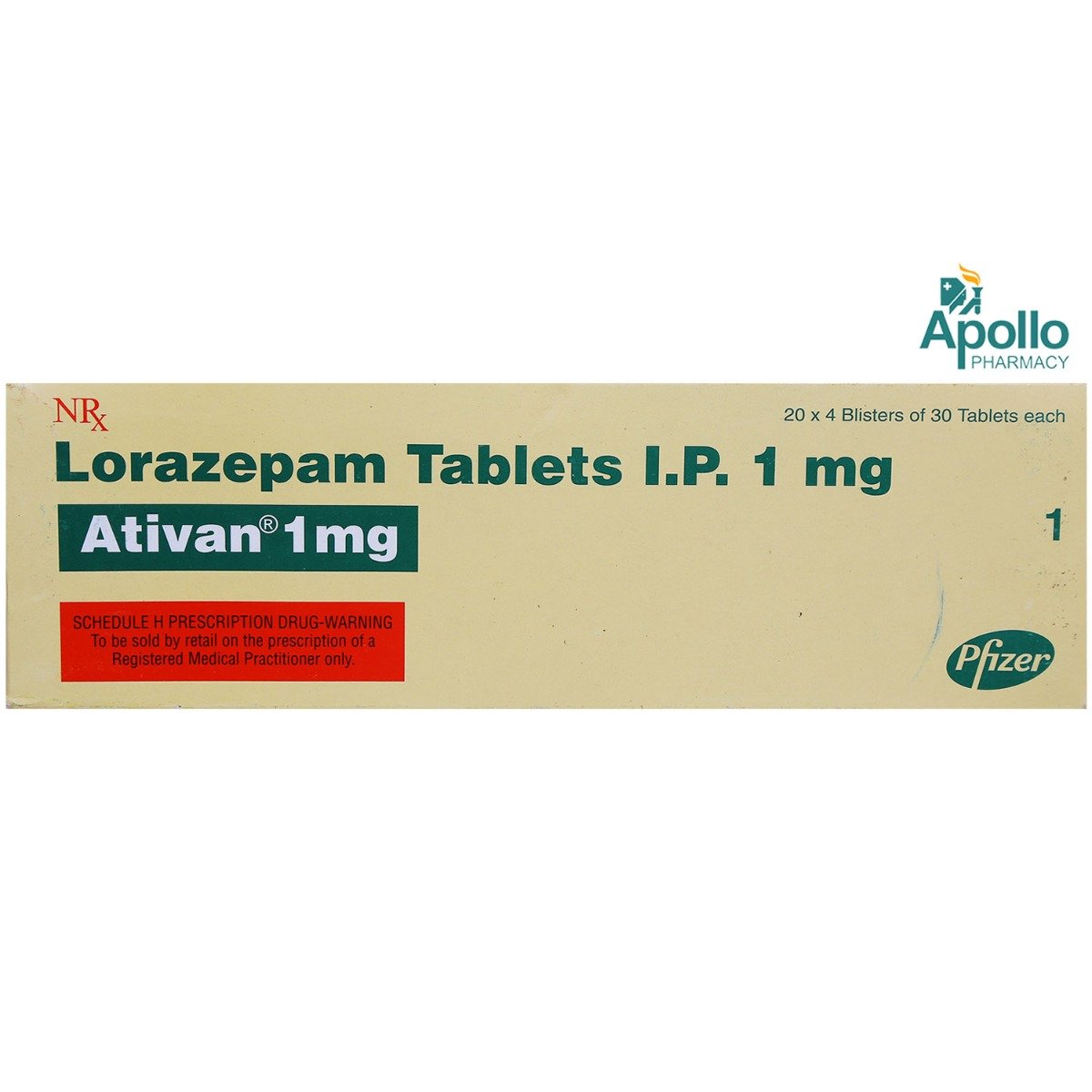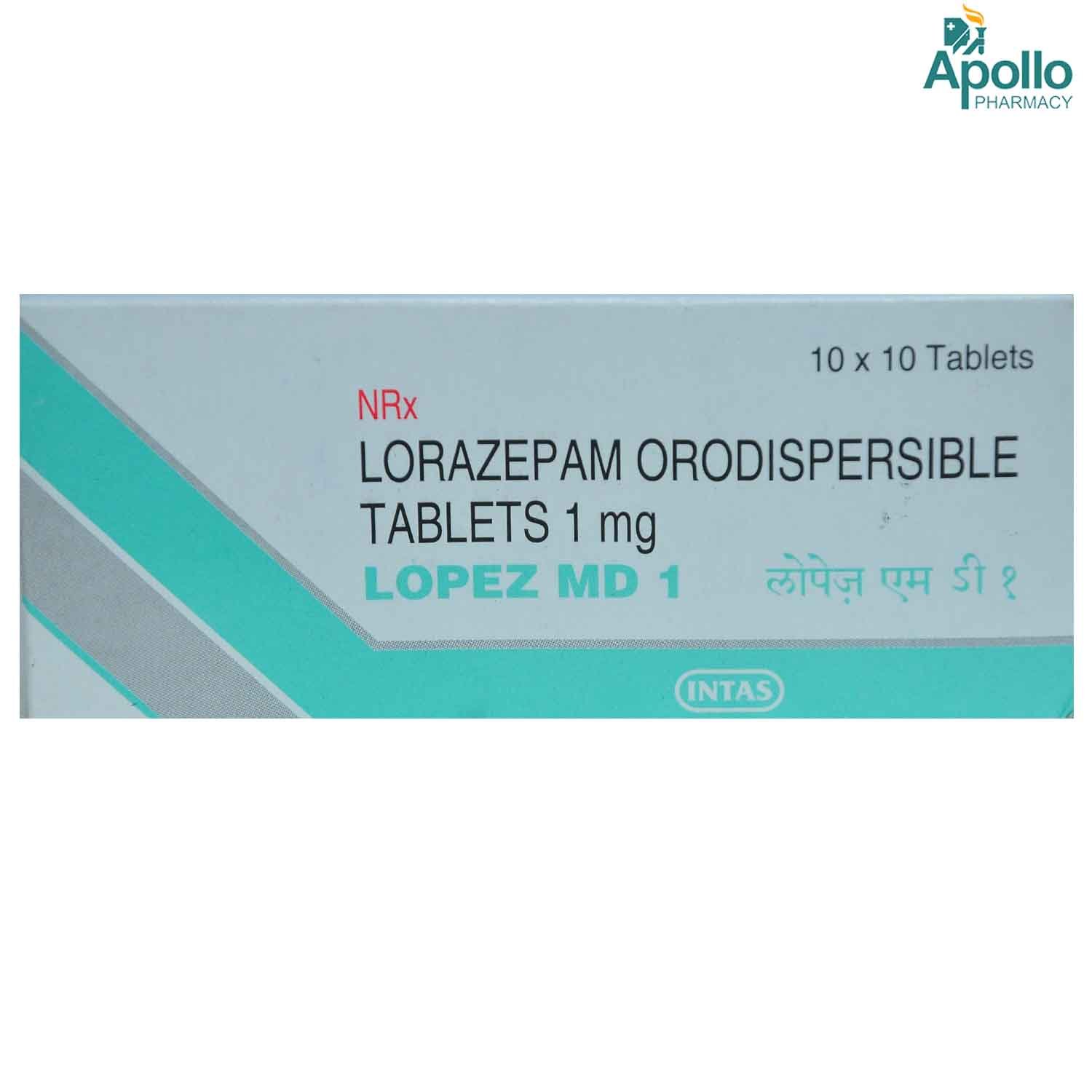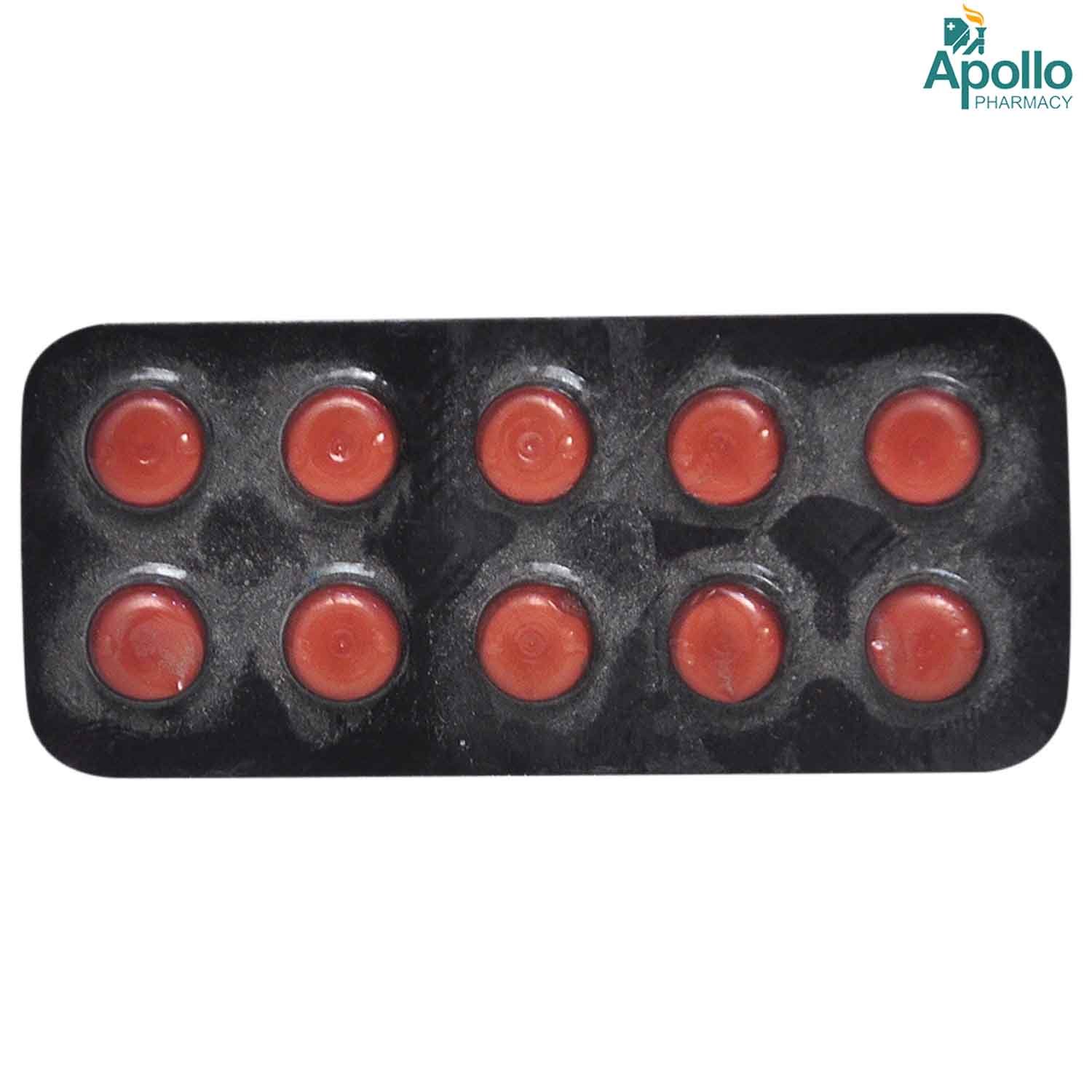- Home
- ZEPNAP 1MG TABLET
ZEPNAP 1MG TABLET Substitute
ZEPNAP 1MG TABLET Substitute
Medicine Composition:
LORAZEPAM-1MGAll Substitutes & Brand Comparisons
RX
Not for online saleAtineu-1 Tablet 10's
Myk Pharmaceuticals Ltd
₹18
(₹1.62 per unit)
5% CHEAPERRX
Not for online saleLanxtra 1 MD Tablet 10's
Quince Lifesciences Pvt Ltd
₹19
(₹1.71 per unit)
RX
Out of StockNot for online saleDewyday 1 Tablet
Macway Biotech Pvt Ltd
₹20.6
(₹1.85 per unit)
8% COSTLIERRX
Not for online saleLopez 1 mg Tablet 10's
Intas Pharmaceuticals Ltd
₹21
(₹1.89 per unit)
10% COSTLIERRX
Not for online saleAtivan 1 mg Tablet 30's
Pfizer Ltd
₹73.5
(₹2.16 per unit)
26% COSTLIERRX
Not for online saleLopez MD 1 Tablet 10's
Intas Pharmaceuticals Ltd
₹24
(₹2.16 per unit)
26% COSTLIERRX
Not for online saleLORICALM 1MG TABLET 10'S
Vrddhi Life Sciences
₹24
(₹2.16 per unit)
26% COSTLIERRX
Not for online saleAnxilor-1 Tablet 15's
Tas Med India Pvt Ltd
₹36
(₹2.16 per unit)
26% COSTLIERRX
Not for online saleLORICON 1MG TABLET
Abl Biotechnologies Ltd
₹24
(₹2.17 per unit)
26% COSTLIERRX
Not for online saleLorel 1mg Tablet 10's
₹24.5
(₹2.21 per unit)
29% COSTLIERRX
Not for online saleAnxopil-1 Tablet 10's
Arches Pharmaceuticals
₹25.5
(₹2.3 per unit)
34% COSTLIERRX
Out of StockNot for online saleAgipam-1 Tablet 10's
Agm Biotech Pvt Ltd
₹23
(₹2.3 per unit)
34% COSTLIERRX
Out of StockNot for online saleBetalor-1 MD Tablet 15's
Better Meds
₹34.5
(₹2.3 per unit)
34% COSTLIERRX
Not for online saleBenrest 1 mg Tablet 10's
RB Pharmaceuticals
₹23.5
(₹2.35 per unit)
37% COSTLIERRX
Not for online saleAxtvan 1 mg MD Tablet 10's
Cnx Health Care Pvt Ltd
₹24
(₹2.4 per unit)
40% COSTLIER

When Should You Consider Switching from ZEPNAP 1MG TABLET?
Patients may explore substitutes in the following scenarios:
- High monthly cost of ZEPNAP 1MG TABLET
- Non-availability in local pharmacies
- Generic recommendation by a doctor
- Side effects or better tolerability with alternatives
What to Know Before Switching
Before you switch from ZEPNAP 1MG TABLET to another medicine, here are some important points to keep in mind:
Same salt, different brands:
Most substitutes contain the same active ingredient - LORAZEPAM-1MG, but the fillers, coating, or manufacturing quality may vary slightly.
Consult your doctor first:
Even if the salt is the same, your doctor can confirm if the substitute is right for your condition, dosage, and health history.
Watch out for allergies or reactions:
Some people may react differently to certain brands due to inactive ingredients. If you notice any side effects, inform your doctor immediately.
Price ≠ effectiveness:
A lower-priced substitute doesn't mean it's less effective. Many generic medicines work just as well as branded ones.
Check the dosage form and strength:
Always match the substitute’s strength (e.g., 5mg, 10mg) and form (tablet, capsule, syrup) with what your doctor prescribed.
Uses
ZEPNAP 1MG TABLET is used in the treatment of epilepsy (fits) and anxiety disorders. The detailed uses of ZEPNAP 1MG TABLET are as follows:
- Anxiety management: ZEPNAP 1MG TABLET is frequently prescribed for short-term relief of anxiety symptoms, promoting calmness and alleviating intense feelings of worry or panic.
- Sedation: ZEPNAP 1MG TABLET serves as a sedative before medical procedures or surgeries, calming patients and reducing anxiety.
- Insomnia treatment: ZEPNAP 1MG TABLET plays a role in treating anxiety-related insomnia by assisting individuals in falling asleep through stress and anxiety reduction.
- Seizure control: ZEPNAP 1MG TABLET is employed in treating certain seizure disorders by stabilising patients experiencing acute seizures.
- Alcohol withdrawal symptoms: ZEPNAP 1MG TABLET reduces symptoms of alcohol withdrawal, easing the transition for those reducing or stopping alcohol intake.
Medicinal Benefits
ZEPNAP 1MG TABLET belongs to a group of medications called benzodiazepine, primarily used to treat epilepsy (fits) and anxiety disorder. ZEPNAP 1MG TABLET contains lorazepam, which works by increasing levels of the chemical mediator that calms brain cells (neurons), known as gamma-aminobutyric acid (GABA); this helps relieve anxiety, stops seizure attacks (fits) and relaxes tense muscles. Additionally, ZEPNAP 1MG TABLET may be prescribed as short-term therapy for sleeping difficulties due to anxiety. It may also be used as a sedative prior to surgery.
FAQs
The substitutes of ZEPNAP 1MG TABLET contain the same active salt(s) - LORAZEPAM-1MG. However, they may differ in price, manufacturing quality, and inactive ingredients. Speak to your doctor to find a suitable option.
Switching to a generic substitute medicine in the place of ZEPNAP 1MG TABLET is often possible if it has the same salt, strength, and dosage form. But always check with your doctor before making any changes to your medication.
Generics versions of ZEPNAP 1MG TABLET are typically more affordable because they don’t include the original brand's research, development, and marketing costs. They contain the same active ingredient and are approved for safety and effectiveness.
Most people don’t notice any difference. However, some may react to different fillers or coatings. If you notice any unusual symptoms after switching, consult your doctor.
Make sure the new medicine has the same active salt, strength, dosage form. Always confirm the change with your doctor or pharmacist.
Substitutes of ZEPNAP 1MG TABLET meet the same safety and efficacy standards as ZEPNAP 1MG TABLET, but small differences in absorption or formulation can exist. A doctor can help you choose the right one for your needs.
Yes. Substitutes of ZEPNAP 1MG TABLET may vary in color, size, or shape due to differences in manufacturing and branding, but this does not affect how they work.
Yes, it’s generally safe to switch between multiple substitutes of ZEPNAP 1MG TABLET if they have the same salt and strength. However, always inform your doctor so they can monitor how your body responds.
Yes, many people safely use substitutes of ZEPNAP 1MG TABLET for long-term treatment. Just ensure it’s done under medical supervision.
If your symptoms stay under control or lab results remain stable, the substitute for ZEPNAP 1MG TABLET is likely working well. Regular follow-ups with your doctor are important.
Absolutely. Even with the same salt, small differences can affect how your body responds when switching from ZEPNAP 1MG TABLET to its substitute. Always consult your doctor before switching.
ZEPNAP 1MG TABLET is used to treat epilepsy (status epilepticus) and anxiety disorder. It may also be prescribed as short-term therapy for sleeping difficulties due to anxiety and as a sedative prior to surgery.
ZEPNAP 1MG TABLET works by increasing levels of the chemical mediator which calms brain cells (neurons), known as gamma-aminobutyric acid (GABA), thus helps relieve anxiety.
Elderly patients are more likely to have confusion and sleepiness or age-related health issues, which may require caution and an adjustment in the dose. Consult your doctor if you have any concerns.
ZEPNAP 1MG TABLET is a habit-forming drug. It is not likely to be addictive if you take it for 2-4 weeks. ZEPNAP 1MG TABLET may be habit-forming if you previously had problems with drugs or alcohol. Therefore, notify your doctor if you had problems with recreational drugs or alcohol.
Do not stop taking ZEPNAP 1MG TABLET until instructed by your doctor. Stopping ZEPNAP 1MG TABLET suddenly may cause side effects like confusion, depression, nervousness, sweating and diarrhoea.
If you have taken a double dose or overdosed on ZEPNAP 1MG TABLET, you need immediate medical help. Call your doctor or go to the nearest hospital or clinic.
No, ZEPNAP 1MG TABLET is not an opioid. It belongs to the group of medications called benzodiazepines used for the treatment of epilepsy and anxiety disorders.
Yes, ZEPNAP 1MG TABLET can be used for short-term treatment of sleep difficulties caused by anxiety if prescribed by the doctor.
ZEPNAP 1MG TABLET will stay in our body's system for 12 hours.
If you get addicted to ZEPNAP 1MG TABLET, you might experience symptoms like, withdrawal symptoms like anxiety, tremors, insomnia, intense cravings and increased tolerance. Seek emergency medical help if you experience these symptoms.
ZEPNAP 1MG TABLET is not known to cause weight gain. However, you may experience weight changes due to loss of appetite.
Yes, ZEPNAP 1MG TABLET may cause depression if you suddenly stop taking it. Hence, continue taking this medicine for a prescribed period.
Yes, ZEPNAP 1MG TABLET may affect memory, particularly in older persons. Consult the doctor before taking ZEPNAP 1MG TABLET if you have any queries.
ZEPNAP 1MG TABLET can cause CNS and respiratory depression if ZEPNAP 1MG TABLET is taken more than the recommended dose, potentially leading to hypotension, extreme drowsiness, muscle weakness, confusion, ataxia and coma. Therefore, always follow the dose prescribed by the doctor based on your medical condition.
Buy best C.n.s Drugs products by
Intas Pharmaceuticals Ltd
Sun Pharmaceutical Industries Ltd
Torrent Pharmaceuticals Ltd
Alkem Laboratories Ltd
Alteus Biogenics Pvt Ltd
Abbott India Ltd
Cipla Ltd
Micro Labs Ltd
Lupin Ltd
Tripada Healthcare Pvt Ltd
D D Pharmaceuticals Pvt Ltd
Ipca Laboratories Ltd
Arinna Lifesciences Ltd
Icon Life Sciences
Linux Laboratories Pvt Ltd
Mankind Pharma Pvt Ltd
East West Pharma India Pvt Ltd
Cnx Health Care Pvt Ltd
La Renon Healthcare Pvt Ltd
Emcure Pharmaceuticals Ltd
Eris Life Sciences Ltd
Talent India Pvt Ltd
Leeford Healthcare Ltd
Consern Pharma Ltd
Tas Med India Pvt Ltd
Macleods Pharmaceuticals Ltd
Matias Healthcare Pvt Ltd
Dr Reddy's Laboratories Ltd
Zydus Healthcare Ltd
Jagsam Pharma
Troikaa Pharmaceuticals Ltd
Ikon Pharmaceuticals Pvt Ltd
Sigmund Promedica
Aristo Pharmaceuticals Pvt Ltd
Ardent Life Sciences Pvt Ltd
Shine Pharmaceuticals Ltd
Zydus Cadila
Theo Pharma Pvt Ltd
Wockhardt Ltd
Lifecare Neuro Products Ltd
Propel Healthcare
Crescent Formulations Pvt Ltd
Mesmer Pharmaceuticals
Matteo Health Care Pvt Ltd
Reliance Formulation Pvt Ltd
Ajanta Pharma Ltd
Capital Pharma
Morepen Laboratories Ltd
Neon Laboratories Ltd
Sanix Formulation Pvt Ltd
Lyf Healthcare
Med Manor Organics Pvt Ltd
Msn Laboratories Pvt Ltd
Akumentis Healthcare Ltd
Pulse Pharmaceuticals
Brainwave Healthcare Pvt Ltd
Hetero Healthcare Pvt Ltd
Cyrus Remedies Pvt Ltd
Sanofi India Ltd
Solvate Laboratories Pvt Ltd
Elder Pharmaceuticals Ltd
Novartis India Ltd
Psyco Remedies Ltd
Alniche Life Sciences Pvt Ltd
Medishri Healthcare Pvt Ltd
Quince Lifesciences Pvt Ltd
Crescent Therapeutics Ltd
Hbc Life Sciences Pvt Ltd
Mova Pharmaceutical Pvt Ltd
Prevego Healthcare & Research Pvt Ltd
Tripada Lifecare Pvt Ltd
Cadila Healthcare Ltd
Solis Pharmaceuticals
Alembic Pharmaceuticals Ltd
Kivi Labs Ltd
Talin Remedies Pvt Ltd
Infivis Life Care
Serotonin Pharmaceuticals Llp
Glenmark Pharmaceuticals Ltd
Aareen Healthcare Pvt Ltd
Primus Remedies Pvt Ltd
Trion Pharma India Llp
A N Pharmacia Laboratories Pvt Ltd
Cadila Pharmaceuticals Ltd
Gagnant Healthcare Pvt Ltd
Vasu Organics Pvt Ltd
Crescent Pharmaceuticals
Wallace Pharmaceuticals Pvt Ltd
Divine Savior Pvt Ltd
Dycine Pharmaceuticals
Glarizonto Pharma Pvt Ltd
Knoll Healthcare Pvt Ltd
Lia Life Sciences Pvt Ltd
Lyceum Life Sciences Pvt Ltd
Maneesh Pharmaceuticals Ltd
Suraksha Pharma Pvt Ltd
Zuventus Healthcare Ltd
Arches Pharmaceuticals
Lincoln Pharmaceuticals Ltd
Pfizer Ltd








